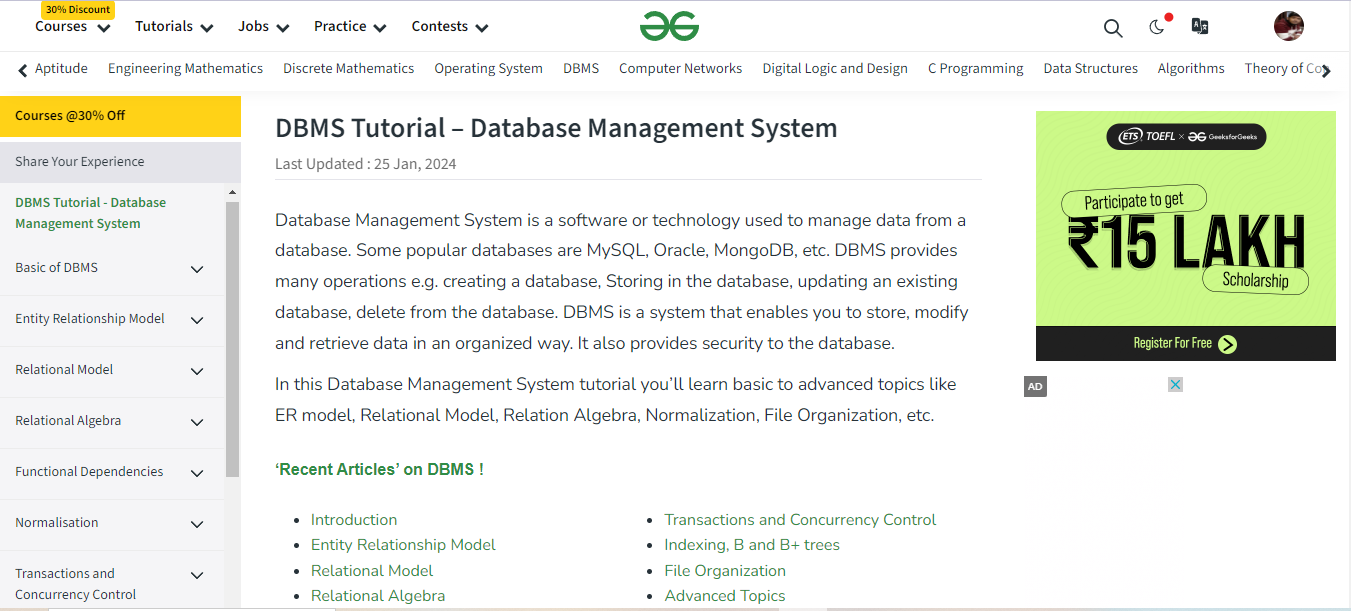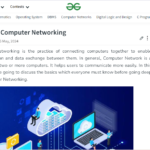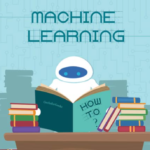DBMS (Database Management System) Notes typically refer to written materials that provide an overview, explanations, and guidance on various aspects of database management systems. Here’s a general description of what you might find in such notes:
- Introduction to DBMS: These notes would likely begin with an introduction to what a DBMS is, its purpose, and its importance in organizing and managing data efficiently.
- Key Concepts: They would cover fundamental concepts such as data models (e.g., relational, hierarchical, network), database architecture, schema, instance, keys, normalization, and denormalization.
- Database Design: They would discuss the process of designing a database, including entity-relationship modeling, creating schemas, defining tables, and establishing relationships between tables.
- SQL (Structured Query Language): Since SQL is the standard language for interacting with relational databases, DBMS notes would include sections on SQL syntax, data manipulation (SELECT, INSERT, UPDATE, DELETE), data definition (CREATE, ALTER, DROP), and data control (GRANT, REVOKE).
- Database Operations: These notes would cover various operations performed on databases, such as querying data, adding new records, updating existing records, deleting records, and performing joins between tables.
- Indexing and Optimization: They would discuss techniques for optimizing database performance, including indexing, query optimization, and transaction management.
- Security and Authorization: Notes would likely include information on database security measures, user authentication, access control, and data encryption to ensure data privacy and integrity.
- Transaction Management: They would cover concepts related to ACID properties (Atomicity, Consistency, Isolation, Durability), concurrency control, and transaction processing.
- Backup and Recovery: DBMS notes would include guidelines for backing up database files regularly and implementing strategies for disaster recovery in case of data loss or corruption.
- Advanced Topics: Depending on the level of the course or study, DBMS notes might delve into advanced topics such as distributed databases, parallel databases, data warehousing, and data mining.
click the below link and open and download the pdf



